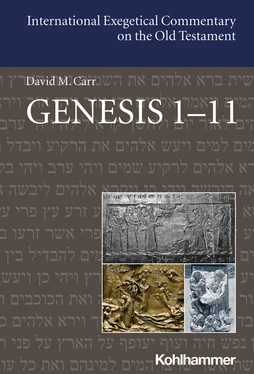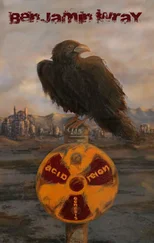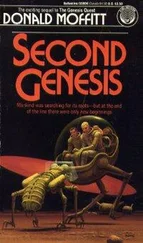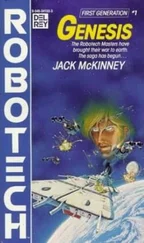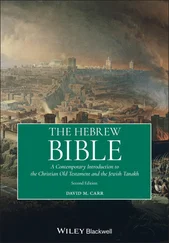David M. Carr - Genesis 1-11
Здесь есть возможность читать онлайн «David M. Carr - Genesis 1-11» — ознакомительный отрывок электронной книги совершенно бесплатно, а после прочтения отрывка купить полную версию. В некоторых случаях можно слушать аудио, скачать через торрент в формате fb2 и присутствует краткое содержание. Жанр: unrecognised, на английском языке. Описание произведения, (предисловие) а так же отзывы посетителей доступны на портале библиотеки ЛибКат.
- Название:Genesis 1-11
- Автор:
- Жанр:
- Год:неизвестен
- ISBN:нет данных
- Рейтинг книги:4 / 5. Голосов: 1
-
Избранное:Добавить в избранное
- Отзывы:
-
Ваша оценка:
- 80
- 1
- 2
- 3
- 4
- 5
Genesis 1-11: краткое содержание, описание и аннотация
Предлагаем к чтению аннотацию, описание, краткое содержание или предисловие (зависит от того, что написал сам автор книги «Genesis 1-11»). Если вы не нашли необходимую информацию о книге — напишите в комментариях, мы постараемся отыскать её.
Genesis 1-11 — читать онлайн ознакомительный отрывок
Ниже представлен текст книги, разбитый по страницам. Система сохранения места последней прочитанной страницы, позволяет с удобством читать онлайн бесплатно книгу «Genesis 1-11», без необходимости каждый раз заново искать на чём Вы остановились. Поставьте закладку, и сможете в любой момент перейти на страницу, на которой закончили чтение.
Интервал:
Закладка:
The initial and primary content of the overall speech in Gen 1:29–30 is God’s declaration that humans are allowed to eat both of the sorts of plants that God had created on day three, both seed-bearing vegetation (עשב זרע זרע; cf. עשב מזריע זרע ]למינהו[ in 1:11–12) and trees that have fruit with seeds in them (העץ אשר בו פרי עץ זרע זרע; cf. עץ פרי עשה פרי 1:11 and עץ עשה פרי אשר זרעו בו למניהו 1:12). Using language with echoes of a legal proclamation that effects a state of affairs, God starts with the untranslatable deictic interjection הנה (something like the French voila ; here “see!”) and then uses the suffix form of the verb נתן (“give”) to state that these two types of vegetation have now been given to humans. God’s mention in 1:29 of both types of plants featured in plant creation of Gen 1:11–12, with the same wording and in the same order, implies that humans are given all plantlife for food. 110This would correspond to the sovereign place of humans as godlike rulers over God’s cosmos.
Genesis 1:30a continues God’s speech about food to humans, but shifts to tell humans about foods that earth’s animals are allowed to eat. The specific focus on animal food is highlighted by the prepositional phrase at the outset, indicating that this instruction excludes fish, focusing on restricting food for land-based animals—animals, birds, and creepers [likely various sorts of insects and reptiles]. The term used for their food, ירק עשב (“green vegetation”), indicates that these animals are only allowed to eat the grass or leaves on plants, thus not competing with humans for the calorie-rich seeds and fruits that form the center of most human agriculture. Nevertheless, it should be understood that this does not imply that humans are thus excluded from eating such greenery. Whatever limitation is given here is meant for animals, and God’s later post-flood instructions to humans that that they now may eat animals “like green vegetation” (9:3) implies that such green vegetation was always allowed for humans.
Thus, not only are humans implicitly forbidden from eating animals, but animals are implicitly forbidden (at least in the ideal world of Gen 1) from eating the sorts of grains and fruits that were cultivated as staples of the ancient Near Eastern human diet. In this way, Gen 1:29–30 depicts an initial “very good” world where humans and land animals should not compete for food. Later, the P prologue to the flood will note that the earth has been “corrupted” and “filled with violence,” and after the flood God will give animals to humans for food “like green vegetation” (כירק עשב; 9:3), thus negating the implicit veganism (for all earth creatures) in 1:29–30. Nevertheless, that time is yet to come. Genesis 1:29–30 depicts an ideal antediluvian world where humans and animals were meant to peaceably co-exist.
Food provisions sometimes appear in ancient descriptions of human creation, particularly Egyptian cosmogonic traditions, but those traditions do not feature this sort of differentiated divine instruction regarding human and animal food. 111Within the nearby context, this speech about allowed foods underlines yet again the distinction that Gen 1 has already drawn between humans and other living creatures (e.g., 1:24–25 versus 1:26–27). In this case, 1:29–30 focuses on creatures, created on both day five and day six, who at least sometimes live on land (including birds). This means fish are excluded here, despite the fact that humans rule them (1:26, 28), because they do not live on land and thus would not have access to land plants. Again, the issue of shared habitat seems to be primary in the inclusion/exclusion of different animal groups.
Gen 1:30b–2:1. The Conclusion of Creation of the CosmosThe sixth day concludes with several elements seen previously, yet each with a slight alteration. Genesis 1:30b contains a statement of execution, ויהי כן (“and it was so”) that usually followed the initial divine statement of intention (thus expected after 1:26). Yet the placement of the correspondence formula at the end of the day here follows God’s further blessing to humans (1:28) and instructions regarding food (1:29), as if to emphasize that these divine wishes, too, were completed as intended. The different placement of the correspondence formula here and also in (most early witnesses of) 1:7 should caution us about having too uniform a view of its function vis-à-vis other elements in the creation reports.
The statement of divine approval in Gen 1:31a corresponds to the statements of divine approval that appear everywhere except in day two. Yet where most other such reports focus exclusively on a given creation act, asserting that “God saw that it was good” (וירא אלהים כי טוב), this expanded approval formula embraces the entire preceding creation and intensifies the statement of divine approval: “God saw all that he had made, and indeed it was very good” (וירא אלהים את כל אשר עשה והנה טוב מאד). This intensified statement thus serves to provide an extra emphasis on God’s approval not only of the creation of humanity (animals already had one in 1:25b), but also God’s multiplication blessing on humanity (1:28) and God’s provisions for peaceful coexistence of humans and animals (1:29–30). Furthermore, the expansion and intensification of the approval formula in this context gives a sense that the creation report is drawing to a close.
Before this report concludes, however, we have two elements. The first is the day formula seen before, but this time with the number of the day featuring a definite article, “the sixth day” (cf. “one day” [יום אחד 1:5; “a second day” יום שני 1:8; etc.). This shift is one indicator that a block of days is now concluded, but the text does not yet tell us more.
Finally, Gen 2:1 wraps things up by saying that “the heavens, the earth and all their array were completed” (ויכלו השמים והארץ וכל־צבאם), thus linking back to the reference to when God “created the heavens and the earth” at the very outset of the text (Gen 1:1). “Heaven and earth” are an expected pair, but the focus on “their array,” literally “their army” (צבאם) is unusual. Often the word צבא (“army”) is in construct with heaven alone, צבא שמים (“the army of heaven,” e.g., stars in Deut 4:19; 17:3). Genesis 2:1 seems to use a traditional word, צבא in an untraditional way to embrace the broader array of created things introduced in the prior creation acts, hence the translation “array” in this context. In Gen 1:1 it was enough to use the traditional pair “heaven and earth” to refer to the whole before they were created. Nevertheless, by Gen 2:1 both of these words, שמים (“heaven”) and ארץ (“earth”) are now linked explicitly by naming with more specific elements of the preceding creation, the heavenly plate (1:6–8) and the chunk of earth revealed when God had the waters gather (1:9–10). Therefore, in order to encompass the full range of other created things (e.g., sea, plants, heavenly bodies, sea and air creatures, land animals, humans), the author here recruits a word צבא (“army”) often used to refer to a broad array of stars or heavenly beings after an initial reference to “sun and moon” (e.g., Deut 4:19; 17:13; Jer 8:2) or “Baal and Asherah” (2 Kgs 23:4). This time, however, צבאם (“their array”) in 2:1 does not refer exclusively to heavenly bodies, as is indicated by the fact that it is preceded by the pair “heaven and earth” rather than the more traditional “sun and moon” or the like. 112
Gen 2:2. God’s Ceasing of Work and Blessing and Sanctification of the Seventh DayThough the report of God’s creation work concludes with 2:1, Gen 2:2 seems to reopen the conclusion in order to introduce God’s anticipation of the later Sabbath. The core of the verse, the statement of God’s ceasing from God’s work on the seventh day in 2:2b, seems clear. As discussed in the translation commentary, it is less clear whether this statement about God’s stopping of work is preceded by a description of God concluding God’s work on the sixth day (so LXX, SP, and Peshitta) or on the seventh day (MT). Both readings are difficult, and neither is crucial for interpretation of the chapter. Either way, the statement in Gen 2:2a about God’s concluding God’s work merely introduces the following statement about God’s ceasing work on the seventh day (2:2b).
Читать дальшеИнтервал:
Закладка:
Похожие книги на «Genesis 1-11»
Представляем Вашему вниманию похожие книги на «Genesis 1-11» списком для выбора. Мы отобрали схожую по названию и смыслу литературу в надежде предоставить читателям больше вариантов отыскать новые, интересные, ещё непрочитанные произведения.
Обсуждение, отзывы о книге «Genesis 1-11» и просто собственные мнения читателей. Оставьте ваши комментарии, напишите, что Вы думаете о произведении, его смысле или главных героях. Укажите что конкретно понравилось, а что нет, и почему Вы так считаете.
